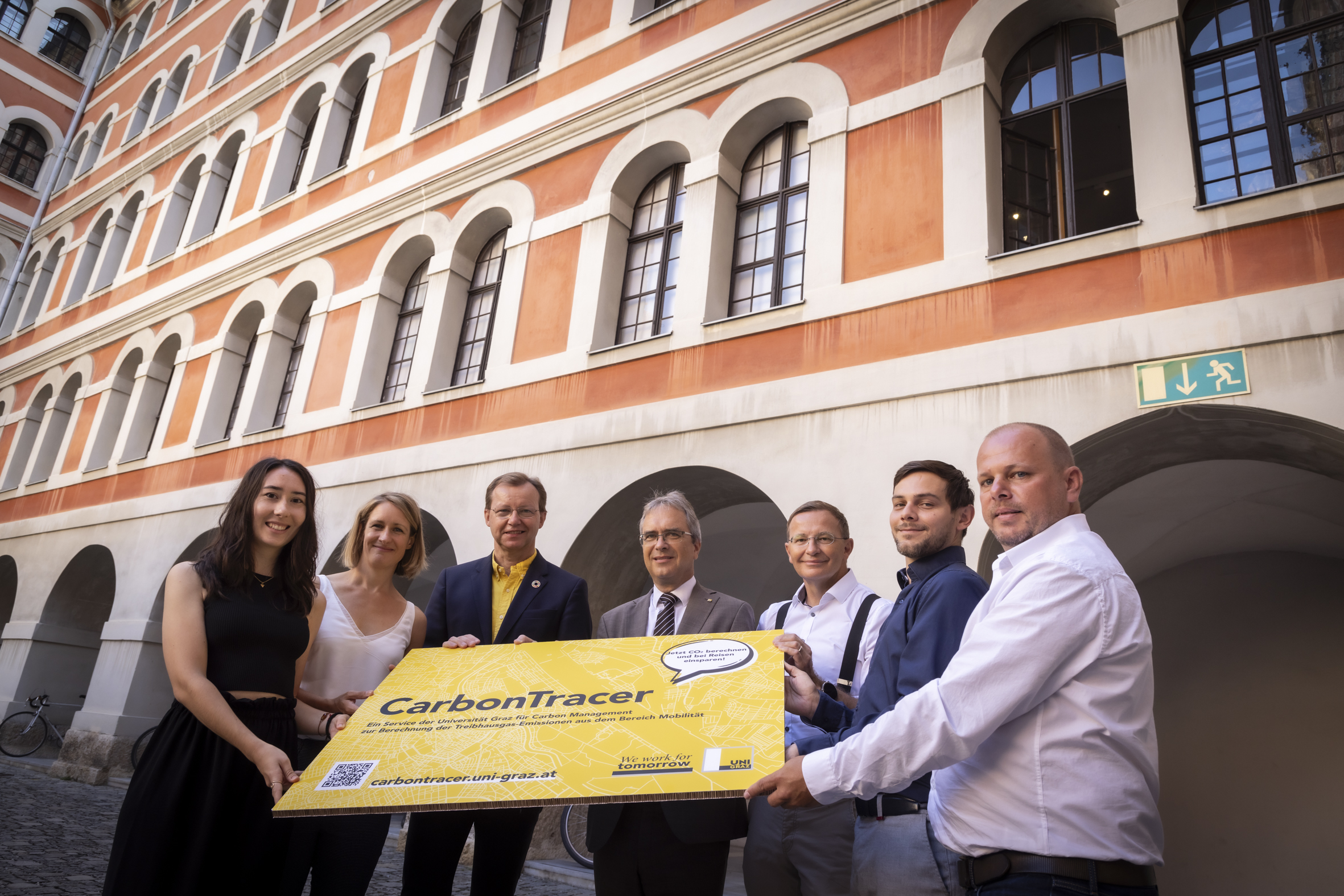The new CarbonTracer tool, which can be used free of charge, is based on the many years of expertise of the Wegener Center for Climate and Global Change at the University of Graz under the direction of the renowned climate scientist Gottfried Kirchengast.
The new web-based tool enables companies, organisations, and individuals to reliably map their private and business travel or individual travel routes regarding the greenhouse gas emissions generated (in kgCO2eq, kilograms of CO2 equivalent).
In this way, private and business trips can be better planned or subsequently evaluated, and commuting routes and means of transport can be compared.
CarbonTracer is based on a science-based professional system, which works with real partial journeys, stopovers, change of means of transport etc.
“We ensure a science-based and carefully maintained data quality that others cannot match. The CarbonTracer service is an essential part of the developments in our comprehensive climate protection solution approach Carbon Management,” Gottfried Kirchengast emphasises the advantage of the new service of the University of Graz.
Due to its high scientific standards, the Wegener Center, together with the HR Applications Department of the University of Graz, offers a high-quality basis that includes many aspects:
For train journeys, consideration of different degrees of electrification in European countries and division into sections by country for transnational journeys.
Updating of emission calculations based on the latest scientific literature. For air travel, CO2-equivalent inclusion of climate-impacting non-CO2 impacts as well
Mapping of actual train routes as well as car and bus routes (rail & street maps)
Another advantage – especially for companies – is that the free service can be integrated into existing systems such as SAP or Excel. It is also possible to process huge amounts of data.
Credibility and reliability of the new service are guaranteed by the initiators: “We are now making the comprehensive climate protection expertise at the University of Graz visible and usable in a concrete service for everyone. Universities make an important contribution to society in many ways. With CarbonTracer, we are once again showing that we are facing up to our social responsibility,” explains Rector Peter Riedler.
Contribution to achieving the Paris climate goals
If we look at Austria, for example, emissions in the mobility sector have risen sharply since 1990 and remain at an unbroken high level.
CarbonTracer provides organisations, companies, and individuals with a solution-oriented, free tool for the particularly emission-intensive mobility sector – the basis for their fair contribution to achieving the Paris climate goals and – if you think one step further – to climate neutrality.
Long-term reliable service
Reliable long-term operation is guaranteed by the University of Graz. “The service was designed by the HR Applications department in the Human Resources Department of the University of Graz and is provided as a basic service on the Uni Graz infrastructure,” says HR Manager and project initiator Kurt-Martin Lugger.
It was set up by the development team Franz Stelzel and Markus Lienbacher together with the scientific team Gottfried Kirchengast, Julia Danzer and Stefanie Hölbling from the Wegener Center for Climate and Global Change at the University of Graz. The data retrieved by service users (e.g. origin-destination sub-routes) is stored anonymously on the university's server to ensure data consistency for multiple queries and to optimise query speeds. Since greenhouse gas emission factors and calculation elements change continuously over time, they are quality-assured and continuously updated by the Wegener Center.
To CarbonTracer:
Try it out right away! https://carbontracer.uni-graz.at
The Wegener Center
The Wegener Center for Climate and Global Change at the University of Graz is an internationally recognised institute focusing on research and the training of highly qualified young scientists. It deals with both the physically oriented and the socio-economic aspects of climate change and global change. Its more than fifty researchers, ranging from young researchers to professors, are also looking for solutions on how the transition to a climate-neutral economy and society can succeed in the sense of the Paris climate goals.
